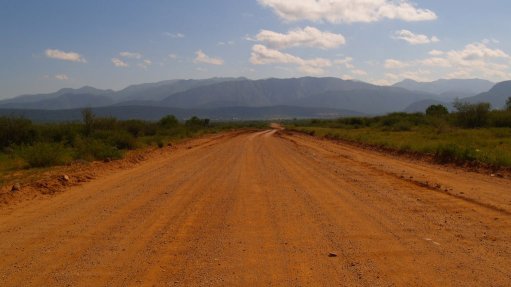NBI launches pragmatic Just Energy Transition Skilling for Employment Programme
With skills having been identified as a key cross-cutting requirement for the Just Energy Transition Implementation Plan (JET-IP), the National Business Initiative (NBI), together with the Presidency’s JET project management unit (JET PMU) and Boston Consulting Group, have launched the JET Skilling for Employment Programme (JET SEP).
South Africa has an opportunity to unlock 20% more of its current gross domestic product through green initiatives, which will need between 150 000 and 200 000 direct jobs by 2025, and between 350 000 and 400 000 jobs by 2050, related to solar photovoltaic, wind and battery storage technology installations, NBI CEO and JET SEP steering committee member Shameela Soobramoney pointed out during an April 29 briefing.
She added that millions of additional jobs would be required across other industries in the value chain.
The country has already garnered $11.5-billion pledged in support of the JET-IP, with government planning to set up three JET-aligned skills development zones focusing on renewable energy and grids, electric vehicles and green hydrogen value chains to improve human resource capacity accordingly.
Over the past ten years, 6 GW of renewable energy has been built, which is poised to grow to between 120 GW and 150 GW by 2050, Soobramoney noted.
“Coordinated national intervention is required to upskill, reskill and newly skill the local workforce with the skills in demand and at the scale needed, lest the country loses the ‘just’ aspect of the JET and further aggravates unemployment,” she stated, adding that inaction would present significant risks for the country.
Should South Africa have sufficient skills for an effective JET, it risks losing about 15% of exports owing to increasingly stringent international regulation, and more than half of the country’s mining jobs as different energy sources are pursued.
During the launch of the JET SEP, Soobramoney listed the CEO champions participating in the programme as being executives from Anglo American, Eskom, Sasol, Standard Bank, Absa, AECI, African Rainbow Energy & Power (AREP), the Agricultural Business Chamber of South Africa, Air Liquide, bp South Africa, Business Unity South Africa (Busa), the Chemical & Allied Industries' Association, DP World, Mediclinic, Norton Rose Fulbright, Old Mutual, Pele Green Energy, the Presidential Climate Commission (PCC), PwC, Sanlam, Sappi, Seriti Resources, Shell, Tongaat Hulett and Transnet.
More entities will form part of an advisory forum to the JET SEP, including the Energy & Water Sector Education and Training Authority, the Construction Industry Development Board and the Green Building Council of South Africa.
Government is working to establish the advisory forum to the JET SEP, which will form part of its governance, in addition to a steering committee and industry working groups covering the three JET-aligned skills development zones.
By the end of Phase 1 of JET SEP, NBI hopes to have mobilised the private sector in support of demand-led skilling; provided recommendations to the JET PMU on the JET skills ecosystem and special development zone design; developed a skills and jobs gap fact-base that is widely accepted, granular and publicly available; established a pipeline of projects or interventions to address the forecast gap; and selected two to three interventions to implement or scale as part of JET SEP Phase 2.
Soobramoney said existing initiatives by entities such as the Department of Higher Education and Training (DHET) would be leveraged to ensure “quick wins” from the programme.
She stressed the importance of the private sector’s participation in the programme, since it knew best what practical skills would be needed in various industries and would bear a social responsibility to upskill, reskill and newly skill people.
DHET skills development deputy director-general Zukile Mvalo agreed that the JET SEP would enrich the work already being undertaken by the DHET and the Department of Science and Innovation that focused on the JET.
He also agreed that work-based learning provided by the private sector would help young people prepare for work in the energy sector and supporting sectors beyond the schooling system, and ensure that graduates were equipped with the competencies – not only technical skills but also soft skills – to thrive in the world of work.
Mvalo pointed out the example that there were currently no hydrogen-specific capabilities offered by sector education and training authorities in South Africa and that their offerings would need to be augmented to address these gaps.
“It is imperative that human resource planning is responsive to market demand and that it keeps abreast of technological developments,” he said.
PCC commissioner and JET PMU head Joanne Yawitch, meanwhile, explained that the JET SEP was a mechanism through which the NBI and its partners could get a comprehensive view of the skills required for the JET and identify practical interventions to achieve aims.
She agreed with Mvalo and Soobramoney that the knowledge, experience and ability to give direction and support to building skills capacity in the country largely lay with the private sector.
Anglo American South Africa chairperson and JET SEP lead CEO champion Nolitha Fakude pointed out that the economy needed both financial and non-financial resources to grow and that a lack of appropriate skills had long plagued the South African labour market.
She stressed the importance of appropriate spatial planning of the skills development zones, lest it became inaccessible for individuals that needed to pursue other jobs amid the transition away from coal mining, for example.
Busa CEO and JET SEP steering committee member Cas Coovadia emphasised the demand-led aspect of developing skills, and not just developing skills for the sake of it. “We need to be pragmatic about this, to ensure that people we skill can earn incomes,” he stated.
Coovadia also stressed the importance of moving with urgency and said business saw the JET SEP as an opportunity for investment, rather than a cost, since it could ultimately contribute to economic growth that boded well for businesses.
AREP and JET SEP CEO champion Brian Dames agreed with Coovadia that the country did not have the luxury of time to play “catch up” with the JET and skills development.
“For us to have a competitive economy, we have little time to develop skills. Important to consider to remain relevant in our approach, is the acceleration of technology and which ones are becoming more affordable,” he said.
He added that South Africa would become irrelevant unless it grasped the opportunities to become a globally competitive economy, based on world-class skills. “There is no way companies will continue to invest in South Africa if we do not have the skills that allow companies to be productive and competitive.”
Dames pointed out that the private sector would create jobs and skill people anyway, but that it was important that everyone act with a sense of urgency, given the scale of the JET and the ticking-timebomb of inequality and joblessness in the country.
Air Liquide large industries South Africa GM and VP Lassad Jaoani and Shell downstream South Africa chairperson Akuwani Museisi both pointed out that South Africa had the opportunity to reconcile a long-term vision among stakeholders and build the kind of world that benefited all in the future.
Presidency project management office head Rudi Dicks said partnerships without practical implementation or understanding of resource allocation and the different roles of partners would not be impactful.
He concluded the launch event by emphasising the importance of scalability of labour market interventions, including in sectors with “latent” demand and not just growing demand.
Article Enquiry
Email Article
Save Article
Feedback
To advertise email advertising@creamermedia.co.za or click here
Press Office
Announcements
What's On
Subscribe to improve your user experience...
Option 1 (equivalent of R125 a month):
Receive a weekly copy of Creamer Media's Engineering News & Mining Weekly magazine
(print copy for those in South Africa and e-magazine for those outside of South Africa)
Receive daily email newsletters
Access to full search results
Access archive of magazine back copies
Access to Projects in Progress
Access to ONE Research Report of your choice in PDF format
Option 2 (equivalent of R375 a month):
All benefits from Option 1
PLUS
Access to Creamer Media's Research Channel Africa for ALL Research Reports, in PDF format, on various industrial and mining sectors
including Electricity; Water; Energy Transition; Hydrogen; Roads, Rail and Ports; Coal; Gold; Platinum; Battery Metals; etc.
Already a subscriber?
Forgotten your password?
Receive weekly copy of Creamer Media's Engineering News & Mining Weekly magazine (print copy for those in South Africa and e-magazine for those outside of South Africa)
➕
Recieve daily email newsletters
➕
Access to full search results
➕
Access archive of magazine back copies
➕
Access to Projects in Progress
➕
Access to ONE Research Report of your choice in PDF format
RESEARCH CHANNEL AFRICA
R4500 (equivalent of R375 a month)
SUBSCRIBEAll benefits from Option 1
➕
Access to Creamer Media's Research Channel Africa for ALL Research Reports on various industrial and mining sectors, in PDF format, including on:
Electricity
➕
Water
➕
Energy Transition
➕
Hydrogen
➕
Roads, Rail and Ports
➕
Coal
➕
Gold
➕
Platinum
➕
Battery Metals
➕
etc.
Receive all benefits from Option 1 or Option 2 delivered to numerous people at your company
➕
Multiple User names and Passwords for simultaneous log-ins
➕
Intranet integration access to all in your organisation





















